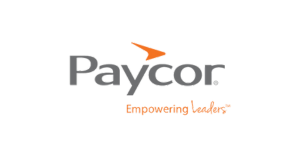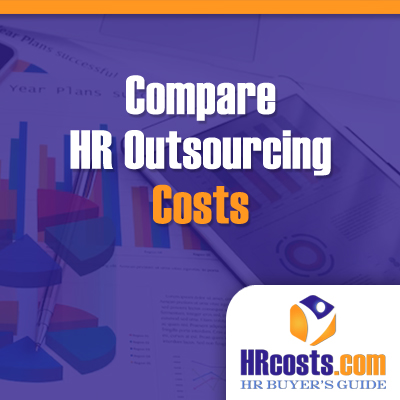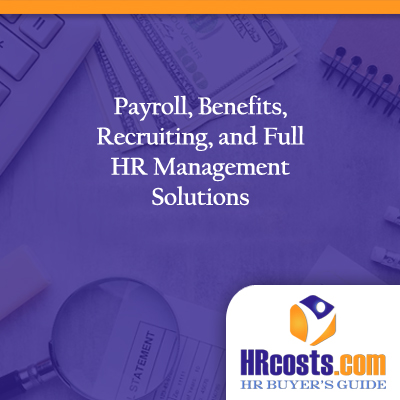
How Much Does Human Resources Outsourcing Cost in 2024?
Depending on your business needs, in 2024 human resources can cost as little as $8/month per employee. This guide will unpack the answer to how much human resources outsourcing costs.
Human resources (HR) is a vital function for any business, responsible for managing employee relations, payroll, benefits, and other critical aspects of the workplace. However, for many small and medium-sized enterprises (SMEs), the cost of maintaining a full-fledged HR department can be a significant burden. This is where HR outsourcing comes into play, offering businesses a cost-effective alternative for managing their human resources needs. In this article, we will explore the costs associated with HR outsourcing and how they compare to the expenses of maintaining an in-house HR department.
Featured HR Companies

Rippling

Oyster

PAYCHEX

Paycor

Deel
Factors Affecting Human Resources Outsourcing Costs
Several factors influence the cost of HR outsourcing. They include:
- Scope of Services: The services provided by HR outsourcing firms can vary significantly, from basic payroll and benefits administration to more comprehensive services such as recruitment, onboarding, and employee training. The more services you require, the higher the cost of outsourcing.
- Company Size: The number of employees in your organization directly impacts the outsourcing cost, as larger companies typically require more comprehensive HR services.
- Location: The geographical location of your outsourcing partner can also influence costs. For example, outsourcing HR services to a company in a country with lower labor costs can be more cost-effective than partnering with a firm in a high-cost area.
- Level of Expertise: The expertise and experience of the HR outsourcing firm can affect the price. More experienced providers may charge higher fees, but they are likely to offer a higher level of service and support.
Average Cost of Human Resources Outsourcing
The cost of HR outsourcing can be broken down into two primary categories: per-employee costs and flat fees. Per-employee costs are calculated based on the number of employees in your organization and the specific services you require. Flat fees, on the other hand, cover a set range of services for a predetermined price.
- Per-Employee Costs: For basic HR services such as payroll and benefits administration, the average per-employee cost ranges from $45 to $160 per employee per month. For more comprehensive services, including recruitment, training, and performance management, the cost can increase to $210 to $400 per employee per month.
- Flat Fees: Some HR outsourcing firms offer flat-fee pricing for specific services, such as recruitment or training. These fees can range from $1,100 to $10,000, depending on the scope and complexity of the project.
Comparing HR Outsourcing Costs to In-House HR
To determine whether HR outsourcing is a cost-effective option for your business, it is essential to compare the costs of outsourcing with those of maintaining an in-house HR department. Factors to consider when comparing costs include:
- Salaries: In-house HR staff typically command higher salaries than the per-employee cost of outsourcing. According to the U.S. Bureau of Labor Statistics, the median annual wage for HR managers was about $127,220 in 2022. In comparison, HR outsourcing costs can be significantly lower, particularly for SMEs with limited HR needs.
- Overhead Expenses: Maintaining an in-house HR department also entails additional overhead expenses, such as office space, utilities, and technology. These expenses can be reduced or eliminated by outsourcing HR services.
- Scalability: HR outsourcing allows businesses to scale their HR services quickly and cost-effectively as they grow. This flexibility can be particularly valuable for rapidly expanding companies or those experiencing seasonal fluctuations in staffing needs.
Human resources outsourcing can offer a cost-effective solution for businesses seeking to manage their HR needs efficiently. By understanding the factors that affect HR outsourcing costs and comparing them to the expenses associated with maintaining an in-house HR department, companies can determine if outsourcing is the right choice for their organization.

List of HR Companies and Their Pricing
Below is a list of 20 well-known human resources companies and their current pricing on their respective websites. Please note that prices can vary depending on your specific needs and the level of service you require. Prices are constantly changing and it is advisable to request quotes for accurate cost information.
1. ADP Cost
According to ADP, HR outsourcing companies that use per-employee pricing models can charge between 4% – 8% of each worker’s pretax monthly earnings.
2. Paychex Cost
Paychex Flex is a modular platform, which allows you to choose the services you need, such as payroll, HR, employee benefits, and more. Pricing for Paychex services is generally quote-based, meaning that you will need to contact the company or a representative to receive a customized quote for your business’s specific needs.
For Paychex’s payroll tools, rates start around $39 per month, plus another $5 per month per employee fee.
3. Insperity Cost
Insperity’s rates start at $99 per month which covers as many as 10 employees. For companies with 11+ employees, Insperity charges an additional $10 per month per employee.
4. TriNet Cost
TriNet charges a flat fee per-employee-per-month (PEPM) basis. Most of their contracts offer flexible terms without a long-term contract.
While TriNet doesn’t publish specific pricing, we have found that you can expect to invest roughly $150 per employee per month for standard payroll and benefits administration.
5. BambooHR Cost
For companies with 20+ employees, BambooHR software is priced on a per-employee, per-month basis. For companies with less than 20 employees, HR software pricing is charged at a monthly flat rate.
For a typical business, BambooHR costs between $6 and $12 per employee per month. As you add more employees, BambooHR pricing will decrease accordingly with that volume.
6. Gusto Cost
Currently, Gusto has plans starting at $46 per month.
Gusto offered several pricing plans for their HR services. Here are the plans:
- Simple: $6 per person per month, with a $40 base price. This plan was designed for basic hiring, including single state, payroll, W-2s, and 1099. Additionally, includes brokered health insurance administration, employee, financial benefits, and more/
- Plus Plan: $60 per month base price, plus $9 per person per month. Covers comprehensive payroll, benefits, and HR tools to help employers build a great place to work—in-person or remote.
- Premium Plan: Prices not listed. Scalable payroll and benefits, expert HR, and dedicated support for the complex needs of growing teams.
- Contractor Only Plan: $o per month base price (first 6 months), plus $6 per contractor per month.
7. Zenefits Cost
Essentials: $8/month per employee. Covers automated onboarding, employee management, time off, tracking, scheduling, and more.
Growth: $16/month per employee. Covers the same as Essentials plus configurable people analytics, compensation management, and performance management.
Zen: $21/month per employee. Covers the same as Growth plus employee engagement surveys, and people hub which allows everyone to communicate directly within the HR system.
Add-Ons (Rate Per Employee per Month): Payroll – $6, Advisory Services – $8, Benefits Admin – $5, Recruiting – $35.
8. Workday Cost
Workday’s software may cost as much as $45-62 per employee per month for companies at scale. This may not be a viable option for small businesses as we understand the annual subscription rates start at $290,000 (or more). Contact the company to confirm the current and actual pricing on annual tomorrow HR outsourcing subscriptions.
9. Kronos Cost
Kronos has a strong base rate of around $45 per month plus approximately 4 to 5 dollars per employee.
10. Ceridian Cost
Ceridian is typically priced in the mid-to-high range. Ceridian Dayforce HCM subscription will range around $22-$29 per employee per month, with reduced rates for more employees.
11. ZOHO People Cost
ZoHo offers a 30-day free trial. Then, plans as follows:
Essential HR: $1.25/user/month. Includes Employee Onboarding, Employee Database Management, HR Files management, Time Off Management, Multi-level Approvals, and Workflow Management.
Professional: $2.00/user/month. Includes same is Essential HR plus Attendance marking via web, mobile, and facial recognition, Biometric Integration, Shift Scheduling, IP & Geo Restrictions, Overtime Calculation, Billing, and Invoicing Integration.
Premium: $3.00/user/month. Includes the same Professional plus Performance Appraisals, KRA and Goals Tracking, 360-Degree Feedback, Self-Appraisals, and Employee Engagement.
Enterprise: $4.50/user/month. Includes the same Premium plus Cases (Employee Query Management), Cases SLA Tracking, Course Management, Discussion Forum, and Assessments.

12. Namely Cost
Namely does not list its pricing on the website. However, from our research, it appears that according to the size of your company, Namely’s software fees can cost between $18 and 24 per employee per month. Namely also charges a small one-time implementation fee.
13. Rippling Cost
Rippling pricing starts at $8 a month, per user. The service includes payroll, direct deposit, time tracking, and new hire onboarding. Other plans are available but require a custom quote.
14. Sage People Cost
Sage HR has 6 plans ranging from $1.50 to $200.
Expenses Management: $1.50/user/month
Performance Management: $3.00/user/month
Shift Scheduling: $3.00/user/month
Time Sheets: $3.00/user/month
Leave Management: $5.50/user/month
Recruitment: $200/user/month
Common Questions and Answers When Buying HR Outsourcing
Below are common questions you should ask when looking to outsource HR services and we included what the typical response will be.
Q: What services are included in the HR outsourcing package?
A: Human Resources (HR) outsourcing packages can vary depending on the provider and the specific needs of a company. However, some common services included in HR outsourcing packages are:
- Recruitment and talent acquisition: This includes job posting, screening, interviewing, and hiring candidates, as well as onboarding new employees.
- Payroll administration: Outsourced HR providers can manage payroll processing, including wage calculations, tax deductions, and issuing paychecks or direct deposits.
- Benefits administration: This covers managing employee benefits programs, such as health insurance, retirement plans, and other perks.
- Time and attendance tracking: HR outsourcing providers can track employee work hours, manage time-off requests, and ensure compliance with labor laws and regulations.
- Employee relations and conflict resolution: This includes handling grievances, conducting investigations, and facilitating mediation between employees and management.
- Training and development: HR outsourcing firms can design and deliver training programs, track employee progress, and manage professional development initiatives.
- Compliance and risk management: HR providers can help ensure that the company is following employment laws, regulations, and best practices, and assist with managing workplace risks, such as workplace safety and data security.
- Performance management: This includes setting performance goals, conducting performance evaluations, and managing employee performance improvement plans.
- HR strategy and consulting: HR outsourcing providers can offer strategic advice on HR best practices, organizational development, and change management.
- HR technology and systems: Outsourced HR services may also include implementing and managing HR software and systems, such as applicant tracking systems, HR information systems, and learning management systems.
Q: Is there a minimum or maximum employee requirement for outsourcing HR?
A: There is generally no universal minimum or maximum employee requirement for outsourcing HR services. HR outsourcing providers cater to businesses of various sizes, from small startups to large enterprises. The decision to outsource HR typically depends on the company’s needs, resources, and objectives rather than a specific employee count.
Small and medium-sized businesses often outsource HR functions to reduce costs, gain access to specialized expertise, and focus on their core business activities. For these companies, even with a small number of employees, outsourcing may be a valuable option.
Large enterprises might choose to outsource specific HR functions to benefit from specialized expertise, increase efficiency, or enhance compliance with complex regulations. In such cases, the employee count might be quite high, but outsourcing might still be a viable option.
When selecting an HR outsourcing provider, it’s essential to consider the provider’s capacity, experience, and ability to handle your company’s specific requirements, regardless of the size of your workforce. Discuss your needs with potential providers to ensure they can accommodate your organization and provide the services you require.

Q: How is HR Outsourcing pricing determined? Is it based on the number of employees or services required?
A: HR outsourcing pricing can be determined by various factors, including the number of employees and the services required. Different providers may use different pricing models, but some common approaches include:
- Per-employee pricing: In this model, the cost of outsourcing is based on the number of employees in your organization. This method is prevalent for services like payroll administration, benefits administration, and time and attendance tracking. The cost per employee may decrease as the number of employees increases, providing economies of scale for larger organizations.
- Per-service pricing: With this approach, the cost depends on the specific HR services required. For example, if a company chooses to outsource only recruitment and training, the pricing will be based on those services alone. This model allows for flexibility, as companies can choose to outsource specific functions and adjust their needs over time.
- Fixed fee or retainer pricing: Some HR outsourcing providers may charge a fixed fee or a monthly retainer for their services. This model can provide cost predictability and stability, but it may not always be the most cost-effective option, especially for companies with fluctuating HR needs.
- Project-based or hourly pricing: For one-time projects or specialized services, providers may charge based on the project’s scope or on an hourly rate. This pricing model works well for services like HR consulting, strategy development, or specific training initiatives.
- Custom pricing: Some providers may offer customized pricing models based on a combination of factors, such as the number of employees, services required, company size, and industry. This approach allows for more flexibility and can be tailored to the specific needs of each organization.
When evaluating HR outsourcing providers, it’s essential to understand their pricing models and how they align with your organization’s needs and budget. Be sure to clarify any additional fees or expenses, such as setup fees or costs for using their software platforms, to get a complete understanding of the total cost of outsourcing your HR functions.
Q: Are there any additional fees or charges outside of the initial quote?
A: While the specifics can vary depending on the HR outsourcing provider, there may be additional fees or charges outside of the initial quote. Some common examples of additional costs include:
- Setup fees: Some providers may charge a one-time setup fee to cover the costs of onboarding your company, setting up systems, and transitioning your HR processes.
- Software or technology fees: If the provider uses specific HR software or platforms, there might be additional fees for licensing, usage, or access.
- Overtime or off-hours support: If you require support outside of regular business hours or on weekends, some providers may charge extra for these services.
- Additional services or add-ons: If your company requires services that are not included in the initial quote or package, there may be additional costs. Examples include specialized training programs, legal consulting, or assistance with mergers and acquisitions.
- Travel expenses: If the provider’s staff needs to travel to your location for meetings, trainings, or other purposes, you may be responsible for covering their travel expenses.
- Variable costs: Some providers may charge for specific services on a variable basis, such as per-employee pricing for payroll administration. In this case, your costs may increase if your workforce grows.
- Price adjustments: Some outsourcing contracts may include provisions for price adjustments, such as annual increases based on inflation or changes in the provider’s costs.
When reviewing an HR outsourcing quote or contract, it’s essential to clarify any potential additional fees or charges. Make sure you have a complete understanding of the total cost and discuss any concerns with the provider before signing an agreement.

Q: Are there any discounts available for long-term HR outsourcing contracts?
A: Yes, many HR outsourcing providers may offer discounts for long-term contracts. These discounts can be a way for providers to build lasting relationships with clients and offer incentives for companies to commit to their services for an extended period.
Discounts for long-term contracts can come in various forms, such as:
- Lower per-employee or per-service rates: Providers may offer reduced rates for their services if your company commits to a long-term contract. This can result in cost savings over time, particularly for companies with a large workforce.
- Waived or reduced setup fees: To encourage long-term commitments, providers may waive or reduce the one-time setup fees associated with transitioning your HR processes and systems.
- Tiered pricing: Some providers may offer tiered pricing structures, where the cost per employee or service decreases as the length of the contract increases.
- Volume discounts: If your organization requires multiple services or has a large workforce, providers may offer volume discounts in exchange for a long-term contract.
- Customized discounts: Some providers may be open to negotiating customized discounts based on the specific needs and requirements of your organization.
It’s essential to discuss potential discounts with HR outsourcing providers during the evaluation and negotiation process. Make sure to get a clear understanding of any discounts offered, including any conditions or requirements associated with them. And always consider the long-term implications of entering into a long-term contract, such as the ability to adapt to changing business needs or the potential costs of switching providers in the future.
Q: Are there any penalties or fees for terminating a human resources contract early?
A: Terminating a human resources contract early may result in penalties or fees, depending on the terms and conditions outlined in the contract. Each contract can be different, so it is crucial to review the specific document to understand the consequences of early termination.
Some potential penalties or fees for terminating a human resources contract early include:
- Termination fees: Some contracts may stipulate that a fee must be paid if the contract is terminated early. This amount may be a flat rate, a percentage of the remaining contract value, or another specified amount.
- Liquidated damages: In some cases, contracts may include a liquidated damages clause that outlines a predetermined amount to be paid by the party terminating the contract early. This is intended to compensate the other party for any financial losses resulting from the termination.
- Reimbursement of expenses: The party terminating the contract may be required to reimburse the other party for expenses incurred in anticipation of the contract’s continuation.
- Loss of discounts or incentives: If the contract included discounts or other incentives for long-term commitment, these may be forfeited upon early termination.
- Legal ramifications: If the termination violates the contract terms, the other party may have grounds for legal action, which could result in further financial penalties or fees.
It is essential to consult with legal counsel before terminating a human resources contract early to ensure that you understand the potential consequences and to minimize any risks associated with the decision.
Related:
